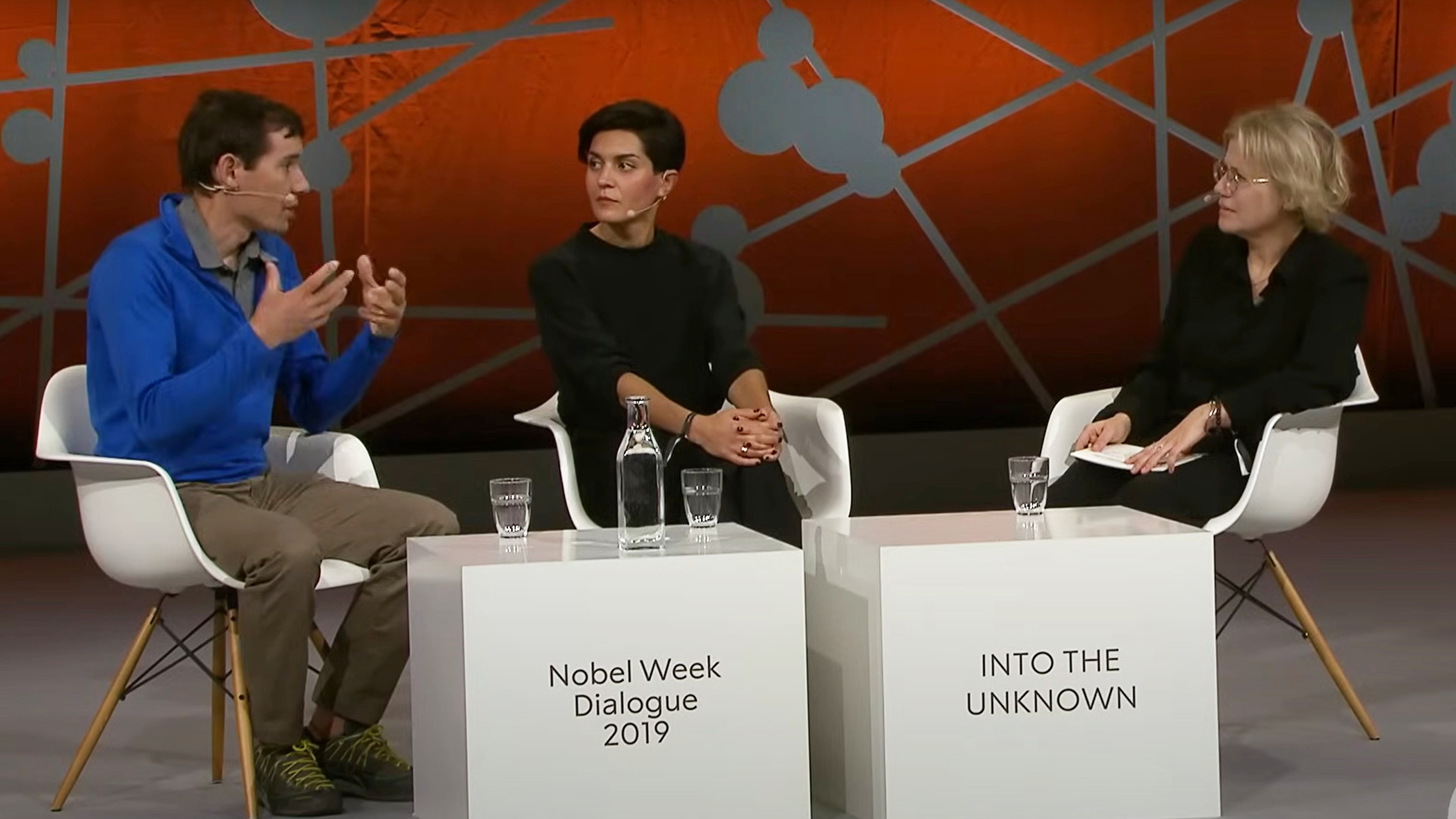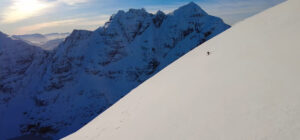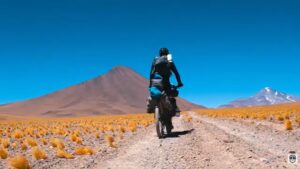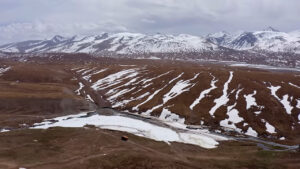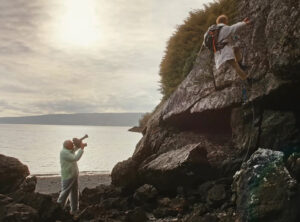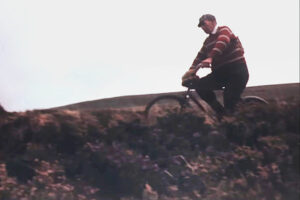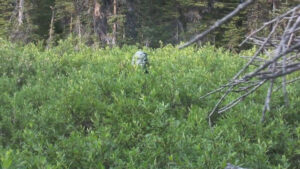Two years after Alex Honnold famously free-soloed El Cap, he sat down for the Nobel Prize’s version of a Ted Talk with psychologist Armita Golkar. The conversation focused on fear — where it comes from, how to handle it, and when to ignore it. The resulting 30-minute video, posted in late 2019, is a window into the inner workings of a man who knows a little something about mastering his mind.
And it’s a useful watch for any outdoor explorer.
Exposure leads to devaluing
At one point, as Honnold is talking, he becomes distracted by a photo being projected on the screen behind him. It’s a shot from his El Cap free solo — the crux of the route. Honnold uses the photo to segue into a conversation about risk and uncertainty.
“Four meters of [that route] is incredibly hard and dangerous,” Honnold says. “But it’s a spectrum, and I think that in normal life, everything we do has a spectrum of risk like that as well. Every time you get in a car, there’s danger involved. There’s risk, there’s uncertainty. Every time you step out your front door, there’s uncertainty.”
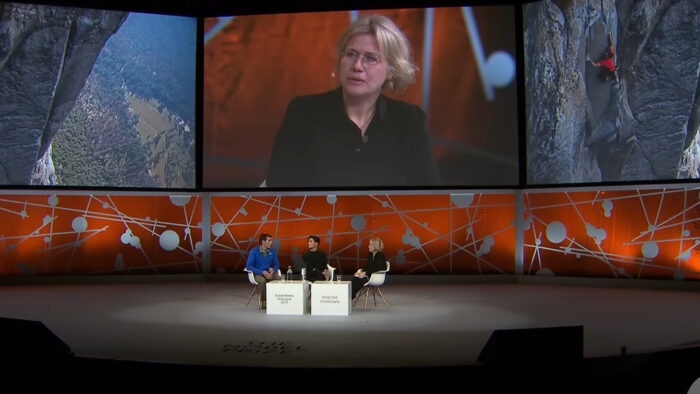
Photo: Screenshot
Golkar agrees with him, noting that his point touches on an important aspect of fear — how regular exposure to something can decrease its emotional impact.
“The fact that we make all these decisions on an everyday basis that are typically full of not just risk but uncertainty [is important]. Traffic, trusting other people, you don’t have any control while sitting in a car what anyone else is going to do in that situation,” she says.
“It would be a 100% deadly outcome if you fall,” she notes, speaking to Honnold. “Traffic accidents could be potentially deadly. We are used to them because they are so frequent. So, we don’t really pay attention to the risks and uncertainties in everyday life because they are so frequent…Which makes us kind of devalue the risks and uncertainty associated with traveling in a car.”
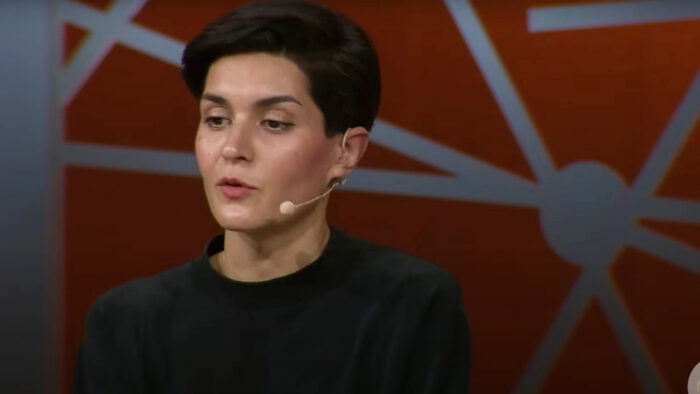
Photo: Screenshot
Golkar goes on to extend the metaphor to the decision to have a child, which is also a very common choice full of long-term risks and uncertainties.
Preparation and experience
Honnold then points out that something like free soloing is an activity he’s chosen, prepared for, and mitigated risk for as much as possible. His theory is that the most dangerous risks in life are the ones you take without fully thinking about.
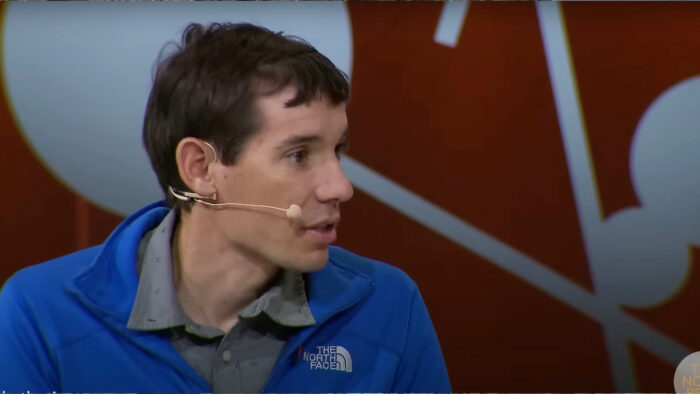
Photo: Screenshot
“There’s rational fear that makes sense because it’s your body responding to danger, and then there’s felt fear. The challenge in rock climbing is to be able to differentiate between the two and know which to heed and which to ignore,” Honnold says.
Curiosity and uncertainty
The conversation springboards into a related topic: How experience can mitigate uncertainty and the specific difference between risk and uncertainty. The distinction is that risk involves calculation, whereas uncertainty involves being trapped in a cycle of worrying about uncalculated factors. But uncertainty isn’t all bad — Golknar associates it with curiosity. After all, we like not knowing what we’re getting for Christmas (or at least most of us do).
According to Golknar, the human desire to mitigate fear is what led to us developing curiosity in the first place.
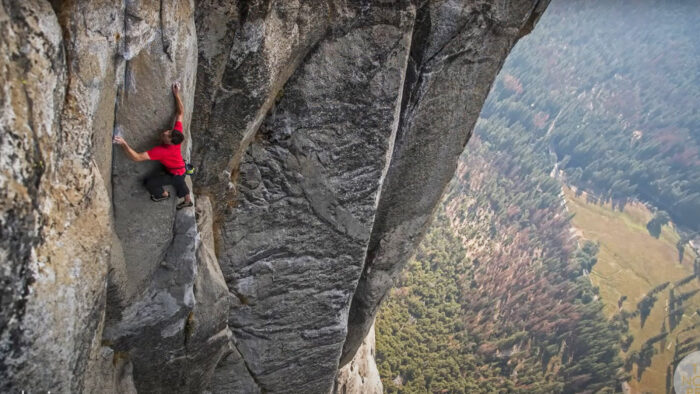
Photo: Screenshot
Honnold goes on to say that, in his opinion, the best way to deal with uncertainty — in this case, unexpected situations on the wall — is to build a broad base of experiences on which to fall back. Again, it comes back to preparation. Honnold is famous for it, especially in advance of his free solos.
We’ll stop there because the conversation is best experienced as a video. But it’s a worthwhile watch from start to finish — particularly if your hobbies involve dangerous situations.
